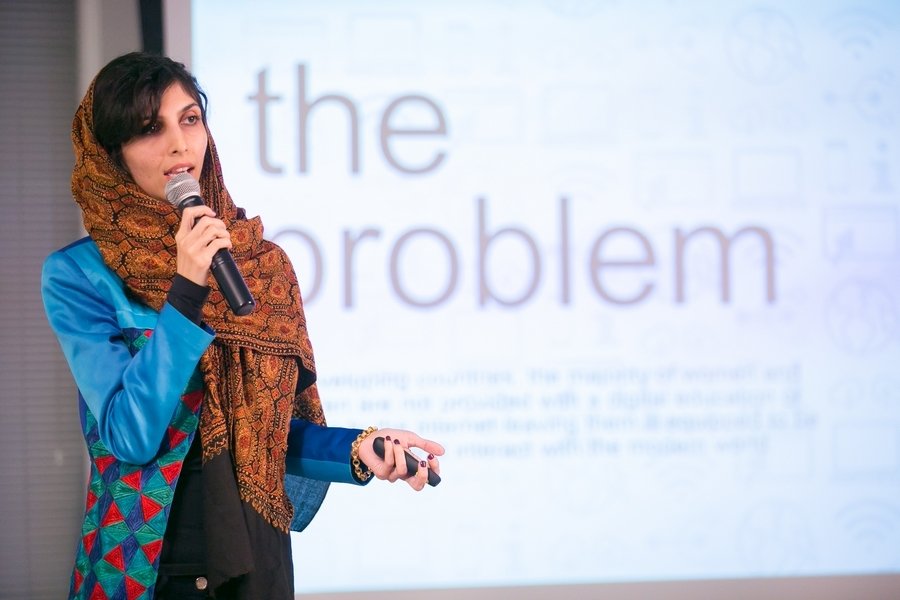Article written by:

JOHN PLETZ
Being a female tech entrepreneur isn’t easy no matter where you are. But you’ve got to want it bad to build a software startup in Afghanistan.
Roya Mahboob, who launched Afghan Citadel Software in Herat five years ago, wanted it more than most. She built a technology-consulting company to 50 employees, most of them female programmers like herself, and launched a foundation to help girls to code in a war zone and a place where women have few rights.
Mahboob brought her story to last night’s WTF, or Women Tech Founders, networking event at 1871. While there’s no comparing Chicago to Afghanistan, and Taliban and ISIS aside, the challenges of being a woman in tech are strikingly familiar no matter the language.
“Getting capital is difficult here, just like Afghanistan,” the 28-year-old told me. “If you’re young, running a company, you don’t get the same respect as someone older. It’s hard to find labor.”
And, of course, there are the brogrammers. “As a female entrepreneur, they don’t want to listen, especially the men.”
But that’s where the similarities end.
“The two challenges for women are security and culture,” she says matter-of-factly. “It’s not only the Taliban or ISIS. A lot of people don’t want women to work or be active in society. They try to make your life hell.”
Many of her workers ultimately left the company because of pressure from their families. After battling bureaucracy and corruption, she left for New York two years ago when the Taliban threatened her life but continues to run the company. Mahboob was named one of Time magazine’s 100 most influential people in the world in 2013.
And she didn’t give up, finding an investor and business partner in the U.S., Francesco Rulli. They built a social-networking platform for blogs, videos and advertising aimed at women users in Afghanistan, Pakistan and Mexico. It also pays contributors for content.
“It provides them someplace they can talk,” she says, even though members use fake names and avatars. “The most important thing you can give women is confidence and tools to succeed. If women get an education, they are difficult to stop.”
Mahboob spent most of her childhood in Iran, returning to Afghanistan when she was 16. She says her father, an engineer, and mother, an educator, along with her four brothers, were supportive of her education. She sees signs of progress. “The big cities are changing,” she says. “You see women going to university and to school. Technology can help solve some of these issues.”
She launched a new company, EdyEdy, an education-technology platform and learning-management system, 18 months ago. The product will launch later this year.
Mahboob will be returning to Afghanistan by the end of the year to run her business and foundation, the Digital Citizen Fund. Afghan Citadel Software is down to about 10 employees—half of whom are emigrating to Europe.
That’s wanting it in a big way.

